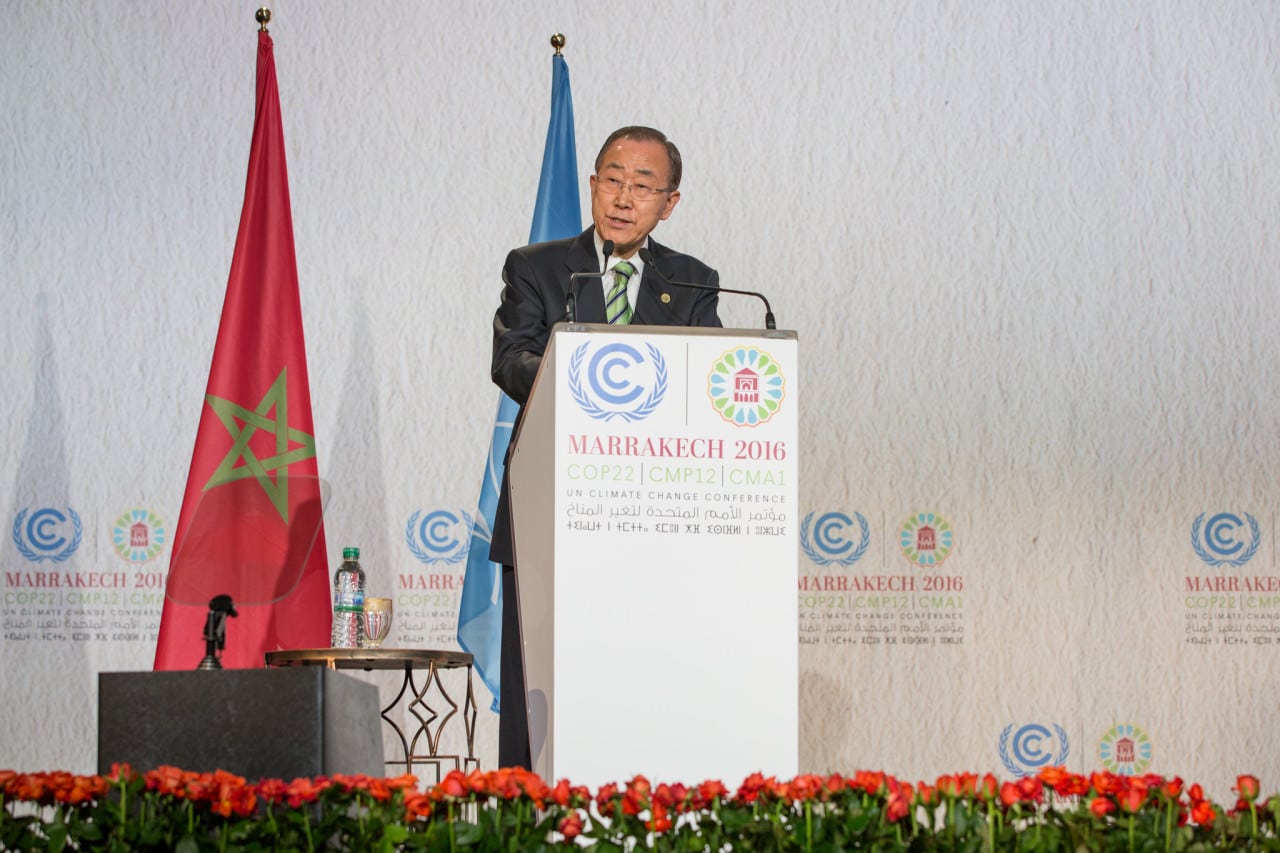
MARRAKESH, Morocco — A week past election day, the selection of Donald Trump as the next president of the United States remains a hot topic at the 22nd session of the Conference of the Parties to the United Nations Framework Convention on Climate Change.
U.N. Secretary General Ban Ki-moon said he hopes the Republican president-elect will come around on climate change, but if he doesn’t global climate action will continue. “He may have to understand the reality of the whole world’s problems, including particularly on climate change. I’m sure that he will make a good and wise decision,” Ban told reporters during a Tuesday morning press conference here.
The secretary general said he spoke with Trump on a number of subjects via telephone last week following the Nov. 8 election, and the two will meet in person in the near future. “When I talked to President-elect Mr. Trump I raised this issue, and I’m looking forward to another meeting in person with him and we’ll discuss all matters of our common concern included climate change,” Ban said.
Trump, who has called climate change a hoax perpetrated by the Chinese, has been vocal in his opposition to President Barack Obama’s climate agenda, including the nation’s participation in the Paris Agreement. Throughout his campaign, Trump stated his intention to “cancel” the climate change accord, or to withdraw the United States.
Pulling out of the Paris Agreement has become more complicated in recent weeks, as the deal entered into force, becoming international law, on Nov. 4. The accord prohibits member nations from formally exiting for four years after that milestone. However, recent reports suggest Trump is exploring more imaginative ways to leave the agreement, such as pulling out of the UNFCCC and finding a way to remove the president’s signature from the document.
Ban maintained a diplomatic tone throughout the briefing, suggesting Trump is a very successful businessman who surely “understands that there are market forces already at work on this issue and that we need to harness these forced for the good of the planet.”
In slightly veiled comments, Ban answered many questions regarding Trump by noting the dedication to climate action of China and other nations, and even of U.S. states and local governments, suggesting domestic climate action will continue even without the support of the new president. “Individual U.S. states and major cities, like California, [the] state of Washington, and major cities like Las Vegas or Nashville, I think they have also pledged to reduce carbon emissions,” Ban said.
Later in the day, during the opening of the high-level segment of the COP, French President François Hollande had a very clear message for Trump: “The role played by Barack Obama was crucial in obtaining an agreement in Paris. …The United States, the largest economic power in the world, the second largest greenhouse gas emitter, must respect the commitments they have undertaken.”
Hollande pledged to work with the United States to ensure Washington sticks to the pledges it made in the Paris Agreement, specifically to by 2025 reduce its carbon emissions by more than a quarter from 2005 levels. “France, I can assure you of this here, will lead this dialogue with the United States and its new president in openness, in respect, but with demands and determination on behalf of the 100 states who have already ratified the Paris Agreement,” he said.